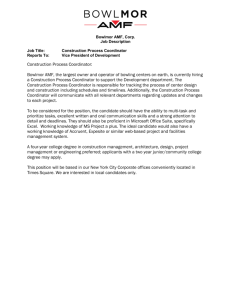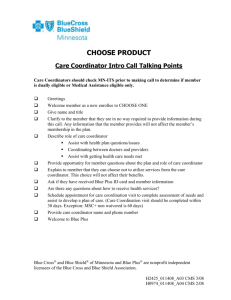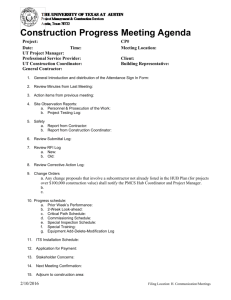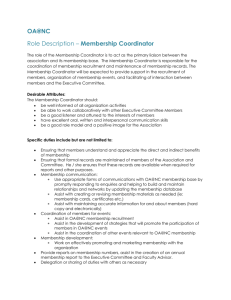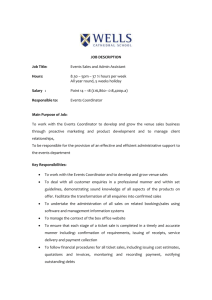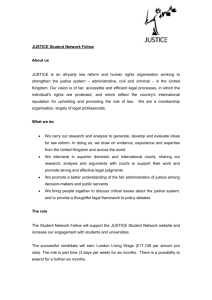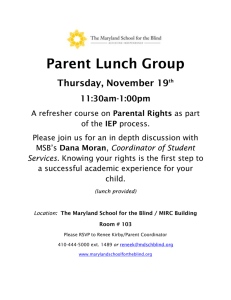Dispute resolution mechanism for CSA
advertisement
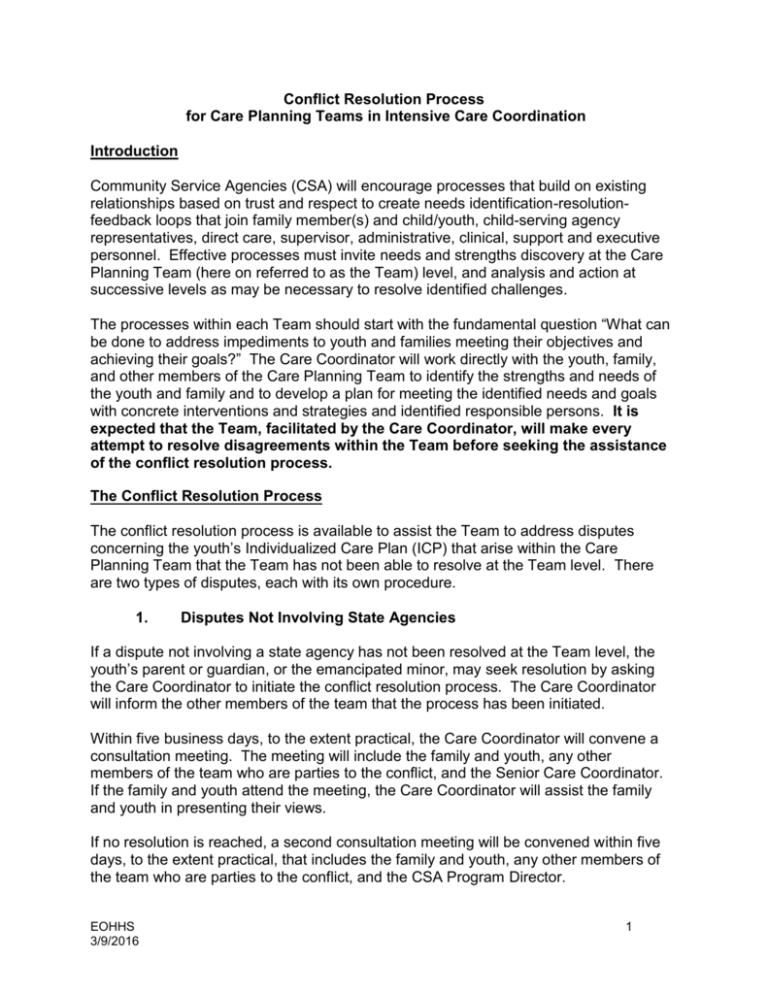
Conflict Resolution Process for Care Planning Teams in Intensive Care Coordination Introduction Community Service Agencies (CSA) will encourage processes that build on existing relationships based on trust and respect to create needs identification-resolutionfeedback loops that join family member(s) and child/youth, child-serving agency representatives, direct care, supervisor, administrative, clinical, support and executive personnel. Effective processes must invite needs and strengths discovery at the Care Planning Team (here on referred to as the Team) level, and analysis and action at successive levels as may be necessary to resolve identified challenges. The processes within each Team should start with the fundamental question “What can be done to address impediments to youth and families meeting their objectives and achieving their goals?” The Care Coordinator will work directly with the youth, family, and other members of the Care Planning Team to identify the strengths and needs of the youth and family and to develop a plan for meeting the identified needs and goals with concrete interventions and strategies and identified responsible persons. It is expected that the Team, facilitated by the Care Coordinator, will make every attempt to resolve disagreements within the Team before seeking the assistance of the conflict resolution process. The Conflict Resolution Process The conflict resolution process is available to assist the Team to address disputes concerning the youth’s Individualized Care Plan (ICP) that arise within the Care Planning Team that the Team has not been able to resolve at the Team level. There are two types of disputes, each with its own procedure. 1. Disputes Not Involving State Agencies If a dispute not involving a state agency has not been resolved at the Team level, the youth’s parent or guardian, or the emancipated minor, may seek resolution by asking the Care Coordinator to initiate the conflict resolution process. The Care Coordinator will inform the other members of the team that the process has been initiated. Within five business days, to the extent practical, the Care Coordinator will convene a consultation meeting. The meeting will include the family and youth, any other members of the team who are parties to the conflict, and the Senior Care Coordinator. If the family and youth attend the meeting, the Care Coordinator will assist the family and youth in presenting their views. If no resolution is reached, a second consultation meeting will be convened within five days, to the extent practical, that includes the family and youth, any other members of the team who are parties to the conflict, and the CSA Program Director. EOHHS 3/9/2016 1 If a proposed resolution is reached, the Care Coordinator will determine, based upon individual circumstances, whether it can be implemented without further action by the CPT or whether it is necessary to convene a CPT meeting to review the proposed resolution. Any CPT meeting will be held within 10 business days of the proposed resolution, to the extent practicable. If the family or youth is dissatisfied with the resolution, or if the Team does not accept the proposed resolution, the matter shall be referred to the CEO or designee for final decision. 2. Disputes involving state agencies If a dispute involving one or more state agencies has not been resolved at the Team level, the child or youth’s parent or guardian, the emancipated minor, or the Care Coordinator acting on behalf of and in the interests of the youth, may seek resolution by asking the Care Coordinator to initiate the conflict resolution process. The Care Coordinator will inform the other members of the team that the process has been initiated. Within five business days, to the extent practicable, the Care Coordinator will convene a consultation meeting. The meeting will include the family and youth, the CSA Program Director and the senior Area Manager of any state agency of the Executive Office of Health and Human Services involved in the conflict. If the family and youth attend the meeting, the Care Coordinator will assist the family and youth in presenting their views. If the Program Director and Area Manager are not able to resolve the dispute, the dispute shall be referred to and resolved pursuant to the EOHHS interagency process required by G.L. c. 6A, § 16R. The final resolution and an explanation of the decision reached will be communicated to the Team within a reasonable period of time or within the time prescribed by regulation when such regulations are promulgated. This process does not establish any entitlement to services from any state agency nor does it replace or invalidate grievance or appeals processes established by provider agency policy or state agency statutes or regulations. Information and Assistance The Care Coordinator will inform all Team members about the Conflict Resolution Process and shall help family members on the Team initiate this process if they disagree with positions or decisions of Team members. The Local System of Care Committee The Local System of Care Committee is NOT a venue for resolving disputes in individual Care Planning Teams; however, systemic or policy issues may be brought to the Local Committee. EOHHS 3/9/2016 2 Issues involving EOHHS state agency policy that cannot be resolved on a local level will be referred by EOHHS agency staff attending Local Committee meetings to their managers and, as appropriate, to their Regional or Area Directors and agency representative on the CBHI Interagency Implementation Team at the State level. EOHHS 3/9/2016 3

